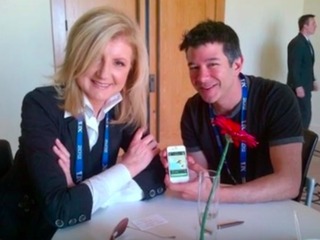DUOS expands AI capabilities to help seniors apply for assistance programs
It will complete and submit forms, and integrate with state benefit systems
Read more... Nothing quite like a reality check before Friday happy hour.
Nothing quite like a reality check before Friday happy hour.
In spite of Uber’s marketing efforts to the contrary, a new study has determined that the mere existence of Uber’s ridesharing services has had no effect on the number of drunk driving fatalities in the U.S.
The study, published this week in the American Journal of Epidemiology by researchers from the University of Southern California and Oxford University, studied traffic fatalities that took place in the 100 most populated metropolitan areas of the country between 2009 and 2014. The researchers sought to identify whether Uber’s availability in an area had an effect on the number of traffic fatalities, whether associated with drunk driving or not.
According to the study, 121 million episodes of drunk driving occur annually in the U.S., contributing to 10,000 traffic fatalities every year. Unfortunately for ridesharing services (and all of us), the study found that availability of Uber’s ridesharing services had no effect:
"We found that the deployment of Uber services in a given metropolitan county had no association with the number of subsequent traffic fatalities, whether measured in aggregate or specific to drunk-driving fatalities or fatalities during weekends and holidays."
The findings refute the message Uber is trying to sell.
With the appointment of Arianna Huffington (co-founder and editor-in-chief of the Huffington Post) to Uber’s board of directors in April, Uber has increasingly tried to upgrade its image with a dose of "emotional intelligence." Around the time of her appointment, Huffington co-wrote a blog post with Uber CEO Travis Kalanick on the dangers of "drowsy driving," which can be as deadly as drunk driving.
More recently, Uber shared data attempting to directly correlate declining drunk driving with upticks in Uber rides. In Atlanta, for example, data from the police department showed that DUI arrests fell 32 percent between 2010 and 2015—Uber launched in Atlanta in late 2012. They even provided a graphic with indisputable evidence that more Uber equals less drunk driving.
Anyone that knows anything about statistics knows that statistics can be warped to say just about anything, so it’s unclear what the discrepancy is here. The most obvious answer, as your philosophy major friend probably tells you all the time, is that correlation does not imply causation. So there are likely more variables influencing the data around drunk driving in Atlanta.
That said, this week’s new study isn’t the only one on the books.
A report by researchers at Providence College and Stonehill College, for example, found that the availability of ridesharing services like Uber did indeed lead to a drop in fatal car crashes.
I’ve reached out to Uber to see what they thought of the new study, and received this statement from a spokesperson:
“We’re glad Uber can provide an alternative to drunk driving and help people make more responsible choices. Our ridership numbers show that trips peak at times when people are more likely to be out drinking and 80% of riders says that Uber has helped them personally avoid drinking and driving.”
In the end, it’s still not clear whether Uber and its counterparts have had a profound effect on drunk driving and traffic fatalities, but you can count on there being more studies in the future to find out.
It will complete and submit forms, and integrate with state benefit systems
Read more...The bill would require a report on how these industries use AI to valuate homes and underwrite loans
Read more...The artists wrote an open letter accusing OpenAI of misleading and using them
Read more...Startup/Business
Joined Vator on
Uber is a ridesharing service headquartered in San Francisco, United States, which operates in multiple international cities. The company uses a smartphone application to arrange rides between riders and drivers.



